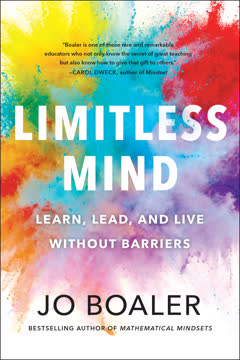Key Takeaways
1. Your brain is a tool, not your master
"Use your brain, don't let it use you."
The brain as an instrument. Your brain is an incredibly powerful tool, but it's not who you are. It's designed to serve you, not control you. By understanding this distinction, you can take charge of your thoughts, emotions, and behaviors.
Becoming the user. To harness your brain's potential:
- Recognize that you are separate from your thoughts and emotions
- Actively choose which thoughts to engage with and which to let go
- Practice observing your mental processes without judgment
- Make conscious decisions rather than reacting on autopilot
By viewing your brain as a tool, you can leverage its capabilities while maintaining control over your life and experiences.
2. Neuroplasticity: The brain's remarkable ability to change
"Neural 'wiring' can be changed, such as through therapy—Siegel uses talk therapy in conjunction with his brain-centered theory."
Brain adaptability. Neuroplasticity refers to the brain's ability to form new neural connections and reorganize existing ones throughout life. This remarkable feature allows us to learn, adapt, and recover from injuries.
Harnessing neuroplasticity:
- Engage in lifelong learning and new experiences
- Practice skills repeatedly to strengthen neural pathways
- Challenge your brain with puzzles, languages, or musical instruments
- Maintain a healthy lifestyle through diet, exercise, and sleep
By actively engaging in activities that promote neuroplasticity, you can enhance cognitive function, improve memory, and potentially stave off age-related mental decline.
3. Emotions and intellect: Finding balance in the brain
"Fear and desire are bred in your instinctive brain, mediated by your emotional brain, and negotiated by your intellectual brain."
Brain integration. The human brain consists of multiple layers, each with distinct functions. The key to optimal mental functioning lies in integrating these different aspects:
- Instinctive brain: Basic survival and reflexes
- Emotional brain: Feelings and social connections
- Intellectual brain: Reasoning and decision-making
Achieving balance:
- Recognize and acknowledge your emotions without being controlled by them
- Use your intellect to analyze situations objectively
- Allow your instincts to inform decisions without dominating them
- Practice emotional regulation techniques like deep breathing or meditation
By fostering cooperation between these brain regions, you can make more balanced decisions and lead a more fulfilling life.
4. Mindfulness: The key to mental well-being and growth
"Mindfulness is about the ability to do so."
Present-moment awareness. Mindfulness involves paying attention to the present moment without judgment. This practice can significantly improve mental health, reduce stress, and enhance overall well-being.
Cultivating mindfulness:
- Practice daily meditation, even if just for a few minutes
- Engage in mindful activities like yoga or tai chi
- Focus on your breath or bodily sensations throughout the day
- Observe your thoughts and emotions without getting caught up in them
Regular mindfulness practice can lead to:
- Reduced anxiety and depression
- Improved focus and concentration
- Enhanced emotional regulation
- Greater self-awareness and personal growth
By incorporating mindfulness into your daily routine, you can develop a more balanced and resilient mind.
5. The power of conscious evolution and personal transformation
"You can guide your own evolution."
Intentional growth. Conscious evolution involves actively shaping your own development through intentional choices and actions. This process allows you to transcend limitations and unlock your full potential.
Steps for conscious evolution:
- Set clear intentions for personal growth
- Cultivate self-awareness through reflection and mindfulness
- Identify limiting beliefs and challenge them
- Embrace new experiences and perspectives
- Practice continuous learning and skill development
By taking charge of your own evolution, you can:
- Overcome ingrained habits and patterns
- Develop new capabilities and strengths
- Adapt more easily to life's challenges
- Create a more fulfilling and purposeful life
Remember that personal transformation is an ongoing process, requiring patience, persistence, and self-compassion.
6. Understanding reality: The mind-brain connection
"Apart from the very unreliable picture running inside the brain, we have no proof that reality is anything like what we see."
Reality as perception. Our experience of reality is shaped by our brain's interpretation of sensory input. This means that what we perceive as "real" is actually a construction of our minds.
Implications of this understanding:
- Our individual experiences of reality may differ significantly
- Our beliefs and expectations can shape our perceived reality
- We have the power to change our reality by altering our perceptions
To leverage this knowledge:
- Question your assumptions about reality
- Remain open to different perspectives and interpretations
- Recognize the role your mind plays in shaping your experiences
- Cultivate a flexible and adaptable mindset
By understanding the subjective nature of reality, we can become more empathetic, creative, and open-minded in our approach to life.
7. Achieving enlightenment through awareness and self-discovery
"Enlightenment follows the same course. Reality A (the secular world) is altered by a moment of insight, shifting your life to different rules, the ones that apply to reality B (in which God is real)."
The path to enlightenment. Enlightenment is not a distant, unattainable goal, but a state of heightened awareness and understanding that can be cultivated through conscious effort.
Steps toward enlightenment:
- Cultivate self-awareness through mindfulness and introspection
- Question your beliefs and assumptions about reality
- Seek out new experiences and perspectives
- Practice compassion and empathy towards others
- Develop a sense of interconnectedness with all things
Enlightenment can lead to:
- A deeper understanding of oneself and the world
- Greater peace and contentment
- Reduced suffering and attachment
- Increased clarity and purpose in life
Remember that enlightenment is a journey, not a destination. Each step towards greater awareness and understanding is valuable in itself.
Last updated:
FAQ
What's Super Brain about?
- Exploring Brain Potential: Super Brain delves into the untapped potential of the human brain, emphasizing the ability to enhance mental capabilities and well-being.
- Mind-Brain Connection: It explores the interaction between the mind and brain, suggesting that thoughts and intentions can shape brain structure and function.
- Practical Advice: The book provides solutions for challenges like memory loss, anxiety, and depression, promoting a proactive approach to mental health.
Why should I read Super Brain?
- Empowerment Through Knowledge: Reading Super Brain empowers you with insights into brain function and how to influence its performance.
- Actionable Strategies: It offers strategies to improve mental health, creativity, and personal growth, making it a valuable resource for optimizing brain function.
- Hope and Inspiration: The book instills hope by showing the brain's adaptability and capacity for healing, encouraging proactive mental well-being.
What are the key takeaways of Super Brain?
- Dynamic Brain: The brain is constantly evolving and can be reshaped through experiences and choices.
- Role of Mind: The mind directs brain functions, emphasizing that we are not just products of biology.
- Overcoming Myths: It dispels myths like the brain's inability to heal itself or inevitable decline with aging.
What are the best quotes from Super Brain and what do they mean?
- "You are not your brain.": Highlights the distinction between mind and brain, suggesting identity extends beyond biology.
- "Use your brain, don’t let it use you.": Reminds us of the power to control thoughts and emotions.
- "The process always involves feedback loops.": Emphasizes the brain's dynamic nature, shaped by experiences and responses.
How does Super Brain define a "Super Brain"?
- Four Roles: A "Super Brain" engages as leader, inventor, teacher, and user, contributing to growth and creativity.
- Dynamic Adaptability: It highlights the brain's adaptability, suggesting enhancement of cognitive abilities through conscious actions.
- Creative Potential: Encourages unlocking creative potential by directing mental processes.
What myths about the brain does Super Brain dispel?
- Injured Brain Healing: Challenges the myth that an injured brain cannot heal, presenting evidence of neuroplasticity.
- Fixed Hardwiring: Refutes the belief that brain hardwiring is unchangeable, showing experiences reshape neural connections.
- Inevitability of Aging: Argues against aging leading to irreversible decline, highlighting strategies for cognitive health.
What practical solutions does Super Brain offer for memory loss?
- Mindful Memory Program: Suggests being passionate, learning new things, and retrieving older memories to enhance memory.
- Avoiding Memory Crutches: Advises against relying on lists, encouraging engagement with environment and experiences.
- Expecting Memory Retention: Emphasizes maintaining high expectations for memory retention to counteract negative self-talk.
How can I overcome anxiety according to Super Brain?
- Awareness of Fear: Encourages recognizing and naming fears to diminish their power.
- Detachment from Emotions: Suggests practicing detachment from anxious thoughts for clearer perspective.
- Seeking Support: Recommends consulting with others who have navigated similar challenges for shared experience.
What role does intuition play in Super Brain?
- Intuition as Insight: Describes intuition as a higher form of understanding beyond rational thought.
- Integration of Knowledge: Intuition integrates knowledge from experiences, aiding in decision-making.
- Trusting Inner Guidance: Encourages trusting intuitive feelings as valid guidance sources.
How does Super Brain suggest I can evolve my brain?
- Conscious Choices: Advocates for choices promoting neuroplasticity, like learning new skills and engaging in meaningful experiences.
- Emotional Awareness: Emphasizes processing emotions for healthier brain function and growth.
- Continuous Learning: Encourages lifelong learning and curiosity, asserting the brain thrives on new challenges.
How does Super Brain address the concept of aging?
- Aging as a Process: Views aging as a complex process influenced by genetics and lifestyle, not just decline.
- Mind-Body Connection: Highlights the mind-body connection's role in aging, with positive mental states leading to better health.
- Anti-Aging Strategies: Provides strategies like mental exercises and social engagement to maintain cognitive function.
What is the significance of the mind-body connection in Super Brain?
- Interconnectedness of Mind and Body: Argues that mind and body are deeply interconnected, influencing each other's health.
- Impact on Health: Discusses how mental states affect physical health, emphasizing stress and emotion management.
- Empowerment Through Awareness: Understanding this connection empowers individuals to make health-promoting choices.
Review Summary
Super Brain receives mixed reviews, with an average rating of 3.85 out of 5. Readers appreciate the book's blend of neuroscience, spirituality, and self-help advice, praising its insights on mind-brain connections and practical tips for improving mental well-being. Many find it intellectually stimulating and life-changing. However, some criticize its organization, repetitiveness, and perceived lack of scientific rigor. Critics argue that certain claims are oversimplified or unsupported. Despite these concerns, many readers recommend the book for its unique perspective on unlocking the brain's potential.
Similar Books









Download PDF
Download EPUB
.epub digital book format is ideal for reading ebooks on phones, tablets, and e-readers.





